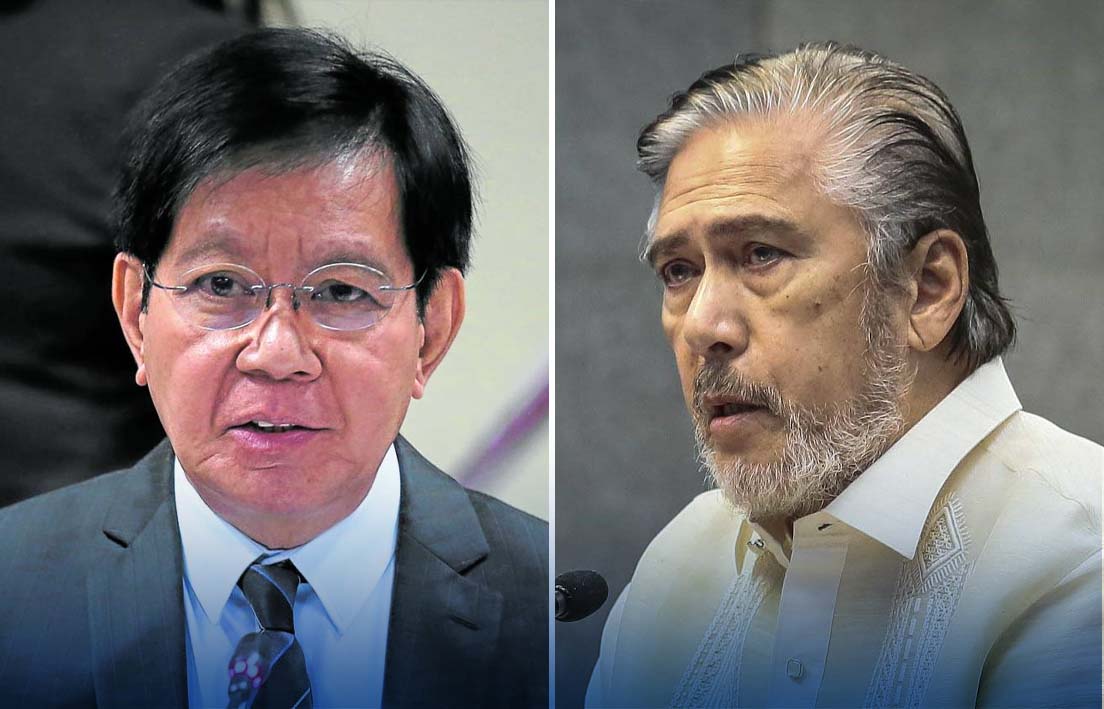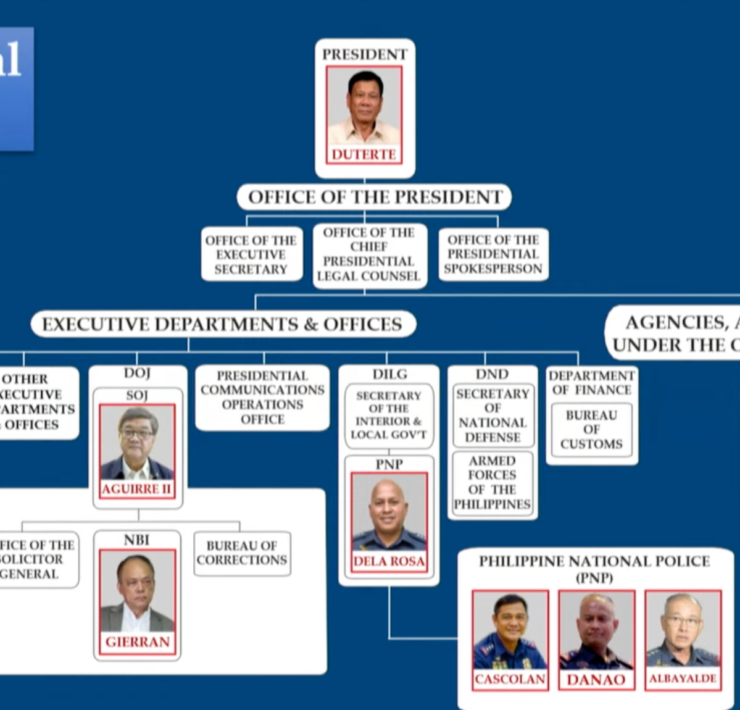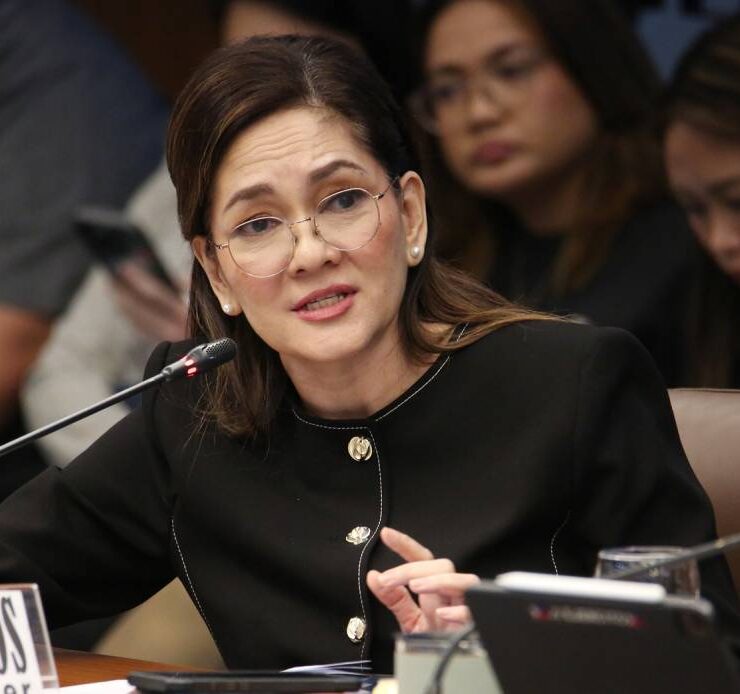Lacson, Sotto to revive VP case upon SC reversal

Senators Panfilo “Ping” Lacson and Vicente “Tito” Sotto III vowed to revive the impeachment case against Vice President Sara Duterte should the Supreme Court (SC) reverse its ruling declaring unconstitutional the articles of impeachment transmitted to the Senate by the House of Representatives.
“Hypothetically, if the SC decision is reversed, I and Senator Sotto will move to pull out the case from the archives and discuss it,” Lacson said in an interview on radio dzBB.
“If someone objects and we lose in the voting, I will recall their explanation in archiving the impeachment, during the 19-4-1 voting. I’m hoping against hope they will respect the final ruling of the Supreme Court addressing the motion for reconsideration. Because if the high court reverses its ruling and they stick to their vote, I will remind them that in their vote to archive the complaint, they invoked respect for the high court,” Lacson pointed out.
But in the end, he said, the majority vote will prevail “because that’s the essence of democracy.”
On Aug. 6, with 19 votes for, four against, and Lacson’s own abstention, the Senate decided to archive the articles of impeachment against Duterte following the SC’s decision declaring her impeachment unconstitutional.
Lacson said he did not “play safe” when he abstained, stressing that he acted out of respect for the Supreme Court.
He debunked such insinuations from some groups as he pointed out that his abstention stemmed from the still-pending motion for reconsideration filed by the House through the Solicitor General appealing the high court’s decision.
Lacson noted that the SC had ordered the Vice President to comment on the motion for reconsideration, instead of a minute resolution dismissing it.
“This means that they want to review the motion based on the merits presented by the Solicitor General. I’m just speculating but it’s not every day that the high court will order a party to comment on its unanimous decision,” he said.
The best action the Senate would have taken on the high court’s initial ruling is inaction, especially now that there is a pending motion for reconsideration, he added.
“If we stay put, we do not violate anything. Archiving the complaint may be tantamount to preempting the high court’s final decision. Are we assuming it will deny the motion? We don’t know that. Yet why are we archiving it? That’s why I questioned it,” he explained.
For now, Lacson said the impeachment complaint may be considered dead but can still be resuscitated, noting that it can be pulled from the archives—although there will be another round of debates and voting.
“So I did not play safe. I followed the Supreme Court and I do not want to preempt it because it has not issued a final decision. I abstained out of respect for the Supreme Court,” he said.
“Abstaining is the most compliant way to show respect and obedience to the Supreme Court. I want to follow the existing ruling, but I also don’t want to preempt the SC’s final decision, which could still be reversed by the SC based on the motion for reconsideration filed by the House,” Lacson said.
“By not acting, we are not opposing the Supreme Court’s order declaring it immediately executory, lacking jurisdiction, and unconstitutional, etc.,” he said.
Constitutional revision
Beyond the “factual errors” that guided the SC ruling to dismiss the impeachment complaint against Duterte, legal experts have also been sounding the alarm over the “overjudicialization” of impeachment after the high court introduced seven new requirements to initiating a complaint.
These requirements imposed new standards that House prosecution panel and veteran lawyer Antonio Bucoy emphasized are not part of the 1987 Constitution or laid out in jurisprudence.
“Impeachment is supposed to be a simple but sacred process,” he said in a press conference earlier this week. “But with this decision, they not only made impeachment harder, but it is more akin to passing through the eye of the needle to hold accountable erring officials.”
The Makabayan coalition, in its own motion for reconsideration filed on Aug. 8, warned that if the SC ruling was left standing, it could “make accountability even more remote and difficult to achieve [and] burdens the people’s recourse to a constitutional remedy with technical and procedural obstacles that the Constitution itself does not require.”
Their appeal argued that the seven procedural guidelines in the decision penned by Senior Associate Justice Marvic Leonen “amount to a substantive revision of the constitutional text” and “encroaches upon powers exclusively vested in the legislative.”
The faculty of the University of the Philippines College of Law argued that the 1987 Constitution upholds due process against the deprivation of “life, liberty, and property.”
Citing Engano v. Court of Appeals, the UP Law faculty argued in an open letter on Aug. 1 that “Impeachment has thus never required the observance of due process that applies to administrative proceedings: the impeachment trial is itself the due process.”
“Unlike in legal proceedings, the principal aim of impeachment is not to litigate a right of the impeachable officer but to protect the public and enforce accountability,” they said.





















